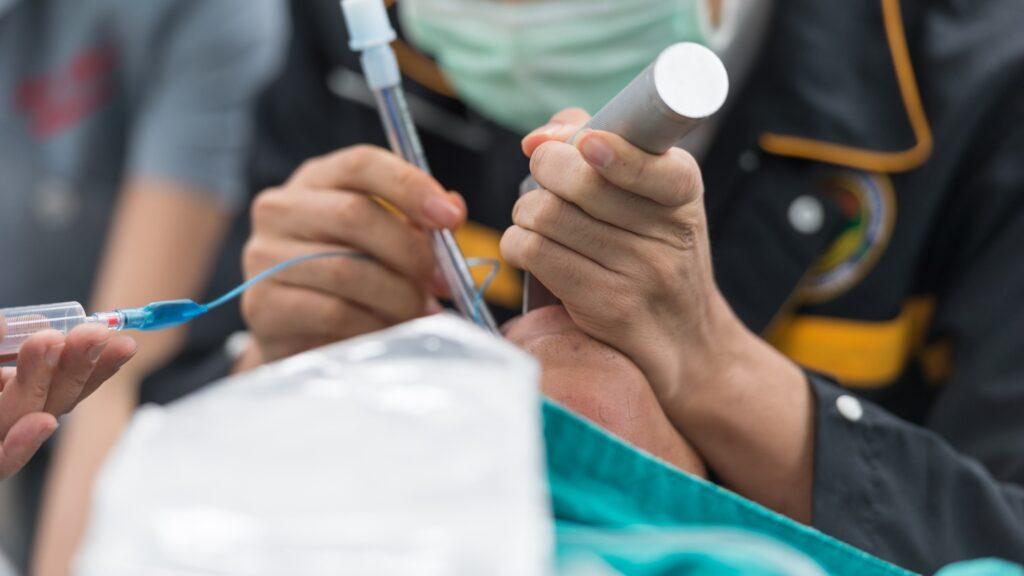In today’s digital age, the healthcare industry is increasingly reliant on technology to store and manage sensitive medical data. Electronic health records, telemedicine, and wearable health devices have revolutionized the way healthcare is delivered, making it more efficient and accessible. However, with the benefits of technology come the risks of cybersecurity threats. The healthcare industry is a prime target for cyberattacks due to the vast amount of valuable personal and medical information it holds. Protecting sensitive medical data is crucial to maintaining patient trust and ensuring the integrity of healthcare systems. In this blog, we will discuss the importance of healthcare cybersecurity and strategies for protecting sensitive medical data.
The Importance of Healthcare Cybersecurity
The healthcare industry is a treasure trove of valuable data, including personal information, medical history, and financial records. This makes it a prime target for cybercriminals seeking to steal and exploit sensitive information. A breach of healthcare data can have serious consequences, including identity theft, financial fraud, and even endangering patients’ lives. Moreover, healthcare organizations are subject to strict regulations, such as the Health Insurance Portability and Accountability Act (HIPAA), which require them to protect patient data and maintain its confidentiality. Failing to do so can result in severe penalties and damage to the organization’s reputation.
In addition to external threats, healthcare organizations also face internal risks, such as employee negligence or malicious intent. This makes it essential for healthcare organizations to implement robust cybersecurity measures to protect sensitive medical data from both internal and external threats.
Strategies for Protecting Sensitive Medical Data
- Encryption: Encrypting sensitive medical data is a fundamental step in protecting it from unauthorized access. This involves converting the data into a code that can only be deciphered with the correct encryption key. This ensures that even if the data is intercepted, it remains unreadable and secure.
- Access Control: Implementing strict access controls is crucial for limiting who can access sensitive medical data. This involves assigning unique user credentials and permissions to ensure that only authorized personnel can view or modify the data. Multi-factor authentication can also add an extra layer of security by requiring additional verification, such as a fingerprint or one-time code.
- Regular Security Audits: Conducting regular security audits and assessments can help healthcare organizations identify vulnerabilities and weaknesses in their systems. This allows them to proactively address any potential security risks before they are exploited by cybercriminals.
- Employee Training: Employees are often the weakest link in cybersecurity, as they may inadvertently fall victim to phishing scams or other social engineering tactics. Providing comprehensive cybersecurity training to all staff members can help raise awareness of potential threats and teach them how to recognize and respond to them.
- Secure Communication: Healthcare organizations must ensure that all communication channels, including emails and messaging platforms, are secure and encrypted. This prevents sensitive medical data from being intercepted or accessed by unauthorized parties.
- Data Backup and Recovery: Regularly backing up sensitive medical data and having a robust data recovery plan in place is essential for mitigating the impact of a cyberattack. This ensures that even if data is compromised, it can be restored from a secure backup without significant disruption to healthcare operations.
- Collaboration with Cybersecurity Experts: Healthcare organizations should collaborate with cybersecurity experts to stay abreast of the latest threats and best practices for protecting sensitive medical data. This may involve hiring dedicated cybersecurity professionals or partnering with external cybersecurity firms to assess and enhance their security posture.
- Incident Response Plan: Developing a comprehensive incident response plan is crucial for effectively managing and mitigating the impact of a cybersecurity breach. This plan should outline the steps to be taken in the event of a breach, including notifying affected parties, containing the breach, and restoring normal operations.
Conclusion
Protecting sensitive medical data is a critical priority for healthcare organizations, as the consequences of a cybersecurity breach can be severe. Implementing robust cybersecurity measures, such as encryption, access control, regular security audits, and employee training, is essential for safeguarding sensitive medical data from internal and external threats. Collaboration with cybersecurity experts and the development of a comprehensive incident response plan are also crucial for effectively managing cybersecurity risks. By prioritizing healthcare cybersecurity, organizations can maintain patient trust, comply with regulations, and ensure the integrity of healthcare systems.


